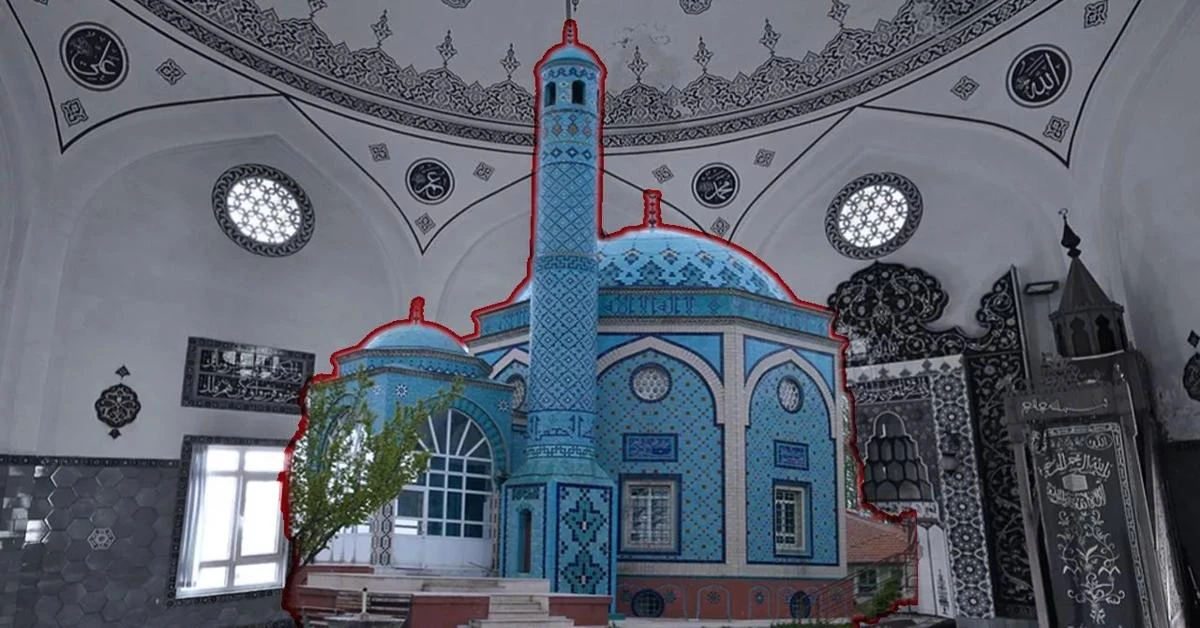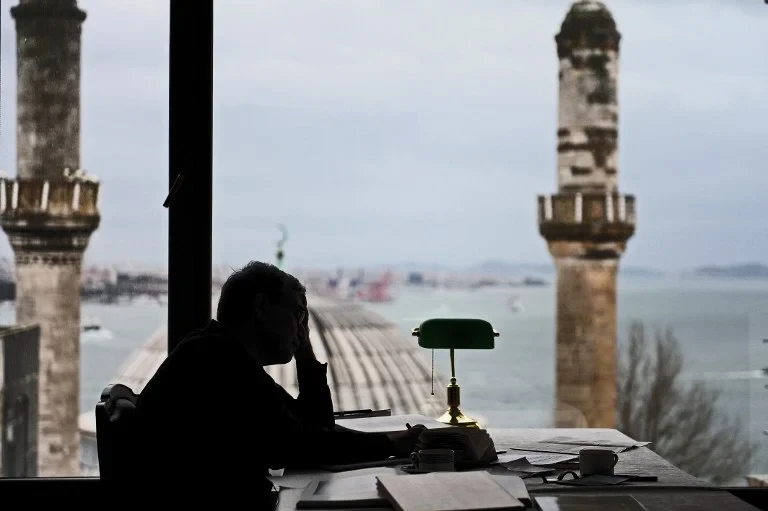Historic Cinili Mosque at crossroads between restoration or reconstruction

The historic Cinili Mosque in Kutahya faces an uncertain future as local artists, community members, and academics debate its restoration or reconstruction
In June 2023, a decision to demolish the historic Cinili Mosque in Kutahya was halted at the last minute by local artists’ intervention.
Since then, academic investigations into the mosque’s future have continued, with no clear resolution in sight. Kutahya MP Ahmet Erbas has been closely monitoring the situation and recently provided updates on the ongoing evaluations.
Local artists, community, academia intervene
The mosque has been closed for worship for six years because of ground subsidence and reinforcement works and remains a focal point of debate.
The initial demolition decision sparked a significant public reaction, dividing locals. Some residents advocate for restoration, while others believe reconstruction is necessary.
In 2020, academics from Kutahya Dumlupinar University, Middle East Technical University, and Eskisehir Osmangazi University led a workshop that decided to reinforce the preservation of the mosque. Subsequently, Kutahya Governor Ali Celik announced plans to restore and reopen the mosque by March 2023.
However, the Provincial Directorate of Culture and Tourism later declared that the mosque would be rebuilt to its original form.
Artists and the local branch of the Chamber of Architects objected to the demolition, arguing that restoration was sufficient. Reports from five universities evaluated various reinforcement and restoration scenarios. Ultimately, four scenarios were found to be unfeasible.
Academic reports mention structural issues
“The report, evaluating four scenarios for strengthening the mosque and the ground, concluded that none were feasible because of the building’s poor condition and numerous potential risks. The final section of the report indicated that reconstruction is necessary. Combining all scientific studies, the Cinili Mosque, created by the world-renowned artist and Ney player Ahmet Yakupoglu in 1973, will return to its former glory,” Erbas explained.
Erbas emphasized the best solution would be reached through academic studies, similar to the Aizanoi excavation project handed over to Dumlupinar University.
He expressed confidence in the university’s esteemed staff to find the most appropriate resolution for the Cinili Mosque.
Regular updates on the mosque’s status come from Dumlupinar University’s Rector, professor Dr. Suleyman Kiziltoprak. Reports from various universities present different aspects of the mosque’s condition. In 2019, Gazi University experts recommended 40 piles and a retaining wall for foundation reinforcement.
A report by Eskisehir Osmangazi University suggested demolishing and reconstructing the mosque because of issues like settlement values and wind load.
Findings from multiple universities
A 23-page report from Middle East Technical University in 2020 recommended retaining the mosque’s dome but repairing damaged areas.
It suggested using polymer fiber or steel materials for internal reinforcement. If reconstructing the minaret was not feasible, it recommended its controlled demolition and rebuilding on a pile foundation.
In June 2023, a 35-page report by Gebze Technical University indicated that the mosque had shifted from its vertical alignment, had shear cracks in the basement columns and beams, and used outdated materials.
The report also highlighted the problematic soil conditions and the region’s seismic activity.
Erbas reassured the public, stating: “The Cinili Mosque will be restored to its former days, integrating all scientific findings.”
Source: Newsroom



